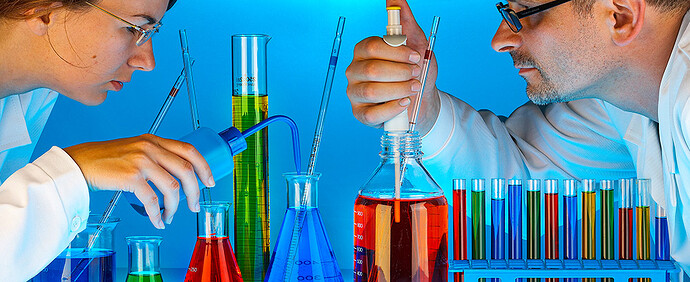Serious Data or Just More Headline Grabbing?
A new study reports that sucralose causes DNA damage, but it looks like they’re playing funny games with the numbers.
Nearly two decades ago, I wrote an article 9 that dispelled some nonsensical myths that were floating around about the artificial sweetener, sucralose (Splenda).
It looks like it’s time for round two, because I’ve recently been inundated with news stories based upon a recently published study (1) conducted by a longtime sucralose critic claiming that “a common sweetener may damage DNA.”
The headlines are, of course, meant to scare the bejesus out of you by implying that the sweetener can cause DNA damage and subsequently lead to cancer, but that’s not actually what the study found.
Genotoxicity, Mutagenicity and Cancer
The authors of the study claim that while sucralose itself has been studied previously (it’s been approved by just about every major regulatory health agency in the world) (2,3), a metabolite of it (sucralose 6-acetate or S6A) that may be formed after ingestion and may also be present in small amounts in the product itself, appears to have genotoxic effects.A “genotoxic effect” is another way of saying that it may cause damage to DNA. However, simply because something is genotoxic (damages DNA) doesn’t mean it will also be mutagenic (damages DNA and causes an irreversible mutation that could potentially lead to a cancerous cell).
For example, pasty people like me tend to worry about ultraviolet radiation from the sun because sunlight is known to be genotoxic and mutagenic. See the difference? Mutagenic agents will be genotoxic, but genotoxic agents may not necessarily be mutagenic.
Is Sucralose 6-acetate (S6A) Mutagenic?
According to the data in the allegedly damning study, sucralose itself (this was already established well before these authors published this study) and S6A were NOT mutagenic. The authors clearly state this as well. Nonetheless, even being genotoxic without being mutagenic isn’t necessarily a great thing, as there may be circumstances where mutagenic effects kick in.Don’t worry, though. This is where their study starts to fall apart.
Is S6A Really Genotoxic? Only at Absurd Concentrations In Vitro
The authors do show evidence that S6A is genotoxic in vitro. However, the data are based on results in cultured cells, not actual living organisms. Perhaps, more importantly, were the outrageously high concentrations required to reach a potentially genotoxic effect. The authors indicate that they had to use at least 353 micrograms per milliliter or higher to begin generating evidence of a genotoxic effect.Now, compare this to the peak plasma concentration of 108 nanograms (a microgram is 1,000 times bigger than a nanogram) per milliliter an adult human is exposed to after a 68 mg dose of sucralose (4). That’s over a 3,000-fold difference! Now consider that S6A would only be present at a fraction (< 1%) of sucralose levels, and the difference would be even larger!
In terms of fitness speak, it’s as absurd as going around telling people you bench “200” when you mean grams instead of pounds!
Unfortunately, this isn’t the first time I’ve caught researchers using outrageous and completely irrelevant concentrations in vitro to make an argument about a potential for harm (5). It’s unfortunate that headlines sometimes take precedence over unnecessary hysteria.

Study1000×409 192 KB
Haven’t I Seen This Before?
This isn’t the first time that research groups have shown a molecule to be genotoxic, but only at ridiculously high concentrations. The same thing happened to caffeine (6,7); you know, the most widely consumed psychostimulant compound in the world that humans have been enjoying for thousands of years?Thankfully, it was finally recognized that coffee isn’t a carcinogen, but I’m sure if the internet were around back when the original research was done, the media would have made sure to have made similarly suggestive and alarming headlines.
Large Balls
I’d say someone has some large balls to reference the same agency that effectively refutes their own arguments. For example, the authors of the sucralose study attempt to distort their findings even more by citing the European Food Safety Authority (EFSA), which is the European Union’s equivalent of the Food and Drug Administration.Specifically, the authors note that the EFSA has a suggested threshold of concern for genotoxic agents at 0.15 micrograms per person per day and that a single serving of a drink flavored with sucralose would exceed this threshold by several fold. The problem, as we’ve discussed, is that S6A is not genotoxic, except at concentrations that no human could ever reach without first dying from water intoxication from drinking hundreds if not thousands of liters of flavored beverages.
What I find additionally interesting is that the authors reference the EFSA when this is the same EFSA that approved sucralose as a safe artificial sweetener 4 at a level of intake that’s three times the U.S. FDA’s acceptable daily intake (ADI).
Furthermore, this is the same EFSA that fully rebutted another sucralose study that these authors repeatedly cite as additional evidence of potential harm (8). It takes chutzpah to cite an agency that contradicts their unfounded claims.
Be Alert!
You’ll likely continue to see ripples from this study as its preposterous findings percolate through the masses. Unfortunately, in vitro studies are prone to exploitation by utilizing high concentrations to achieve a given outcome.This isn’t unique to this study. In general, be skeptical of in vitro studies and always evaluate the concentrations being used. In short, there’s no good evidence that sucralose or S6A is genotoxic at any concentrations that are conceivably relevant to human exposure.
You’ve got enough to worry about, but sucralose causing cancer isn’t one of them.

